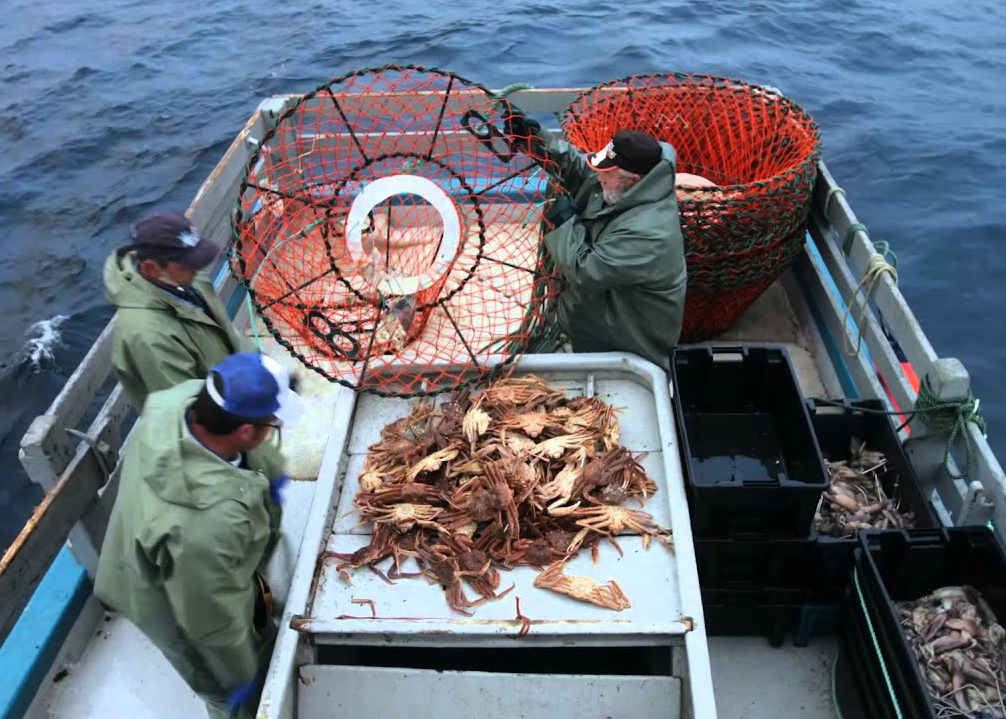Canada's snow crab fishery is looking ahead at another year without its Marine Stewardship Council certification, but the real risk may be at the hands of the ecolabel.
Last March, the MSC scrambled to suspend its certification of Eastern Canada's snow crab fishery after a high rate of right whale entanglements and deaths traced back to the fishery in 2017.
What happened next was a little surprising — the lack of a label didn't have much effect on prices. Despite a buoyant market, Canada's fixed-gear fleets as well as federal and provincial managers set about on an international mission to work with their neighbors to the south who have long been fighting the good fight to reduce right whale interactions.
Maine's lobster fishery has been at the forefront of gear innovations to coexist with right whale migratory and feeding patterns. Ten years ago, the fleet made an expensive conversion to sinking groundline instead of using floating rope between pots on a trawl. But the population of an estimated 411 right whales has been expanding its territory into Canada's Gulf of St. Lawrence, where regulations haven't been as robust.
In the last 10 years, NOAA's Atlantic Large Whale Take Reduction Team has been able to confirm that "the increased exposure to Canadian fisheries has increased Canadian entanglements," said Mike Asaro, the acting assistant regional administrator for NOAA's Greater Atlantic Regional Fisheries Office, at the Maine Fishermen's Forum on Friday, March 1.
Asaro was reporting on the upcoming recommendations from the Take Reduction Team to help fixed-gear fisheries limit right whale entanglements. NMFS is also expected to release a biological opinion under the Endangered Species Act sometime in 2019. That report will determine whether the Northeast lobster fishery jeopardizes right whales.
"We've had Canadian collaboration throughout this entire process," Asaro added.
It's possible that the biggest loser here could be the MSC. During the summer of 2017, when we were being barraged with bad news for right whales, the ecolabel's private auditors were preparing to recertify the snow crab fishery. In October that year, they green-stamped the fleet for another five years. Then they were suddenly hustling to expedite another audit and reverse course.
After a very public withdrawal, the fact that the snow crab market didn't respond to the missing label leaves some questions as to the value of the label in the first place. But Gilles Theriault, president of the New Brunswick Crab Processors, isn't taking the extended suspension lightly.
Stakeholders in the fishery are committed to sharing their story in the hopes that the fleet's conservation efforts will stabilize the price of their harvest for the season that begins in April or May 2019.
Certifier SAI Global recognized Canada's efforts toward conservation, but noted that one year without deaths (three known entanglements were nonfatal) is not enough evidence of reduced risk to right whale recovery.
“We are extremely disappointed and frustrated with MSC’s decision to maintain the suspension of our sustainable fishing certification for the 2019 fishing season," Thériault said in a statement, "despite the multiple successful efforts taken by industry and the government of Canada during the 2018 fishing season."







